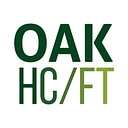Social Determinants of Health (“SDoH”) — the idea that social services needs and healthcare utilization are directly correlated — has rapidly emerged as a buzzword for government agencies, payers, providers, and employers. But what is needed to evolve SDoH from a conceptual topic to an actual and integral part of the care continuum?
Unite Us is tackling this exact question by connecting various stakeholders into a coordinated network that can collaborate around a patient and address their specific needs. This is no easy feat, considering the broad stakeholder universe and each group’s distinct role:
· Community Based Organizations (“CBOs”) — There are nearly 220,000 CBOs in the US, accounting for ~$200 billion of spend funded by state government budgets, federal government grants, philanthropy, and other sources. These organizations provide essential services — food, housing, employment, etc. — but frequently lack the ability to track in-bound referrals, coordinate with partners, and quantify their impact.
· State and Local Governments — Governments are being held accountable to improve care access and to help coordinate care for their constituents while managing their overall health care budgets. They recognize the need for a common infrastructure to manage health and social services, and they understand that building capabilities in-house is an expensive proposition.
· Payers/Integrated Delivery Networks (“IDNs”)/ACOs — Addressing high cost patients is a universal priority and payers have long been investing in tools and programs to reduce unnecessary healthcare utilization by intervening before a health care event takes place (i.e. utilization management, disease management). Further, state governments are increasingly demanding integration with state-funded social services programs and CBOs as part of Medicaid RFPs.
· Health Systems — Inefficient workflows are causing burnout with hours spent on social care and tracking patients outside of the health system manually. Increasing quality measure requirements (i.e. re-admissions, avoidable clinical utilization) and desire to manage un-reimbursed care mix have health systems looking for ways to better coordinate with CBOs.
· Patients — Patients with identified social services needs are often referred “organically” (i.e. pamphlets) without appropriate qualification of what social service programs they may qualify for. As a result, this population often resorts to ED utilization for needs that can be addressed by CBOs. Often, these high-risk patients fall through the cracks and their health deteriorates until they resurface in a healthcare setting.
Enter Unite Us. Given this diverse stakeholder universe, the company integrates with existing systems of record (i.e. EHR, CRM, etc.) to create a master patient index with cross-stakeholder views of patient needs and utilization of social services. The platform then facilitates cross-stakeholder e-referrals, patient needs assessments, bi-directional messaging and outcomes tracking — thus creating an activated network of stakeholders with clear accountability at each node and a patient-centric view of network utilization.
Founded in 2013 by Veterans Dan Brillman and Taylor Justice, Unite Us started as a solution to address unmet social services needs for veterans and quickly grew to become the largest social services network operator across more than 20 states. Unite Us was most recently selected as the state-wide platform for North Carolina and expects to continue its growth momentum in the years to come to make social services and healthcare an integrated care delivery model.
Oak HC/FT is excited to support Unite Us and joined by Town Hall Ventures, Define Ventures, and other strategic investors to further the company’s mission of improving care access for the most vulnerable patient populations.
